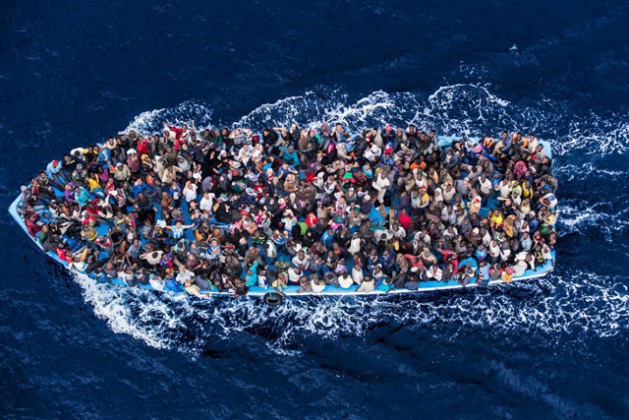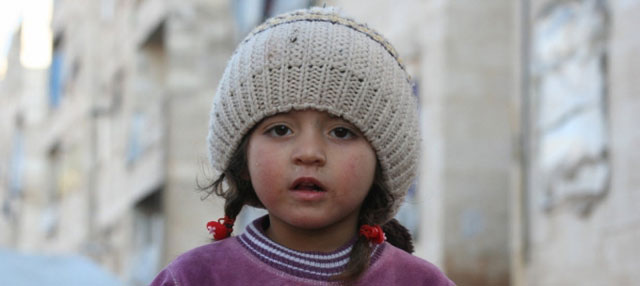by BAHER KAMAL
 Hundreds of refugees and migrants aboard a fishing boat moments before being rescued by the Italian Navy as part of their Mare Nostrum operation in June 2014 PHOTO/The Italian Coastguard/Massimo Sestini/UN News Centre
Hundreds of refugees and migrants aboard a fishing boat moments before being rescued by the Italian Navy as part of their Mare Nostrum operation in June 2014 PHOTO/The Italian Coastguard/Massimo Sestini/UN News Centre
 People across Syria continue to face horrific deprivation and violence, says UN Humanitarian Chief PHOTO/Al-Riad shelter, Aleppo/OCHA/Josephine Guerrero
People across Syria continue to face horrific deprivation and violence, says UN Humanitarian Chief PHOTO/Al-Riad shelter, Aleppo/OCHA/Josephine Guerrero
Will the rapid–though silent escalation of political tensions between the European Union and Turkey, which has been taking a dangerous turn over the last few weeks, push Ankara to drop a “human bomb” on Europe by opening its borders for refugees to enter Greece and other EU countries?
The question is anything but trivial—it is rather a source of deep concern among the many non-governmental humanitarian organisations and the United Nations, who are making relentless efforts to fill the huge relief gaps caused by the apparent indifference of those powers who greatly contributed to creating this unprecedented humanitarian crisis.
These powers are mainly the United States, the United Kingdom and France who, supported by other Western countries and rich Arab nations, led military coalitions that invaded Afghanistan and Iraq and who, along with Russia, have been providing weapons to most of the fighting parties in Syria.
Ironically, these four powers are permanent members of the United Nations Security Council.
Neither the above posed question is about a mere, alarming speculation. In fact, Turkish president Recep Tayyib Erdogan has recently made veiled, though specific threats to the EU, by warning against the consequences of Europe continuing to fail the two key commitments it made in exchange of the EU-Turkey refugee agreement —also known as “the shame deal”–, which the two parties sealed on March 22 this year.
The deal is about Turkey taking back the hundreds of thousands of asylum seekers who fled to its territories mostly from Syria, Iraq and Afghanistan and crossed from there to EU bordering countries like Greece. Once “re-taken”, the EU said it would “select” an undetermined number of asylum seekers, mainly Syrians.
In exchange, the European Union promised to pay to Ankara three billion euro a year, starting in November 2015, to share only a relatively small part of the big financial burden that Turkey has to face by providing basically shelter, food and health care to the repatriated asylum seekers. Turkey currently hosts three million refugees.
The EU also promised to allow Turkish citizens to access its member countries without entry visa, also as part of the “shame deal.”
The tensions between the EU and Turkey were made clearly visible on the occasion of the World Humanitarian Summit (WHS), which Turkey hosted in Istanbul on May 23-24, 2016, covering a big portion of its cost.
The WHS was meant to highlight the fact that human suffering has now reached unprecedented, staggering levels as stated to IPS by Stephen O’ Brien, the UN Under-Secretary-General for Humanitarian Affairs, Office for the Coordination of Humanitarian Affairs and Emergency Relief Coordinator (OCHA), as well as to call on world leaders to mobilise the much needed resources to alleviate this human drama.
Inter Press Service for more
